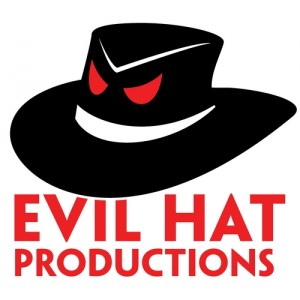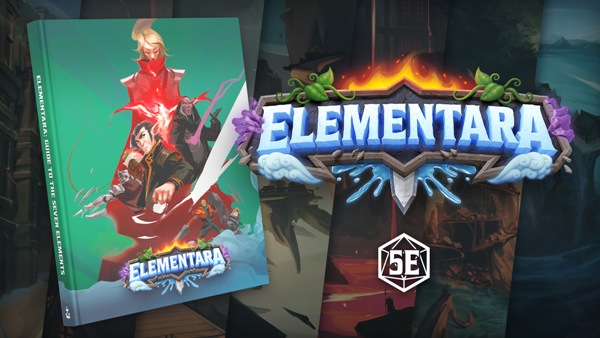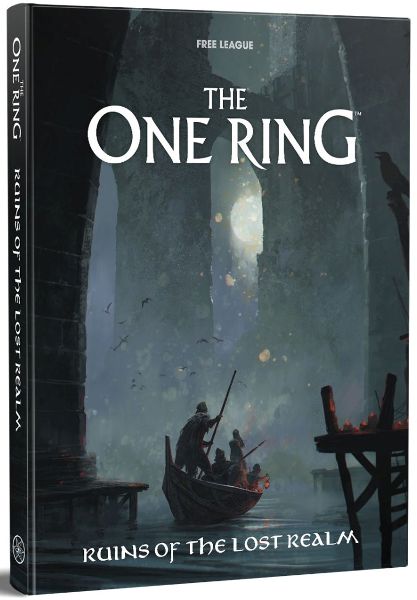Moving Out of the Basement
By The Warden
 As I write this, it’s Saturday night at the Game Summit con in Gatineau and there are games covering every square inch of the floor. It’s an impressive collection of nearly every tabletop game you could imagine with fans and curious newcomers alike wandering around checking out what’s what. Even the mass number of vendors, ambassadors, and game masters cannot meet every demand, be it someone’s search for that rare game they’ve read about online or finding enough space to join in the next big thing.
As I write this, it’s Saturday night at the Game Summit con in Gatineau and there are games covering every square inch of the floor. It’s an impressive collection of nearly every tabletop game you could imagine with fans and curious newcomers alike wandering around checking out what’s what. Even the mass number of vendors, ambassadors, and game masters cannot meet every demand, be it someone’s search for that rare game they’ve read about online or finding enough space to join in the next big thing.
Sharing a table with me are Corey Reid (Dino-Pirates of Ninja Island and the upcoming Initiative), Jason Pitre (the upcoming Spark RPG), and Fraser Ronald (Kiss My Axe and the upcoming Centurion) plus there’s close to a dozen more hopeful and successful game designers and publishers pimping their wares. The selection in this one building is astonishing to someone who grew up in a generation where we told the other kids we played poker all night long instead of delving into Castle Ravenloft until 8 in the morning. Every box and book in here represent the hopes and dreams of an aspiring individual wishing for nothing more than their creation to become someone’s favourite pastime.
Equally daunting is that there are so many things to write about this week, I’m not sure which one takes the top slot. Correction: I have an idea on which should take top priority, but selecting these topics is not always about what’s popular and dominating every blog and website out there. Sometimes it’s about covering the smaller bits of industry news that may have greater impact than others may suspect or simply because no one else is covering it. There may be some weeks where I’m digging through my backlog of possible topics, but others like this one are ripe with signs of new possibilities in the RPG industry.
We’ve talked about the role of Google Hangouts for the industry and there was big news announced this past week as Tabletop Forge, recent recipient of a successful Kickstarter project, merged with Roll20 to work together on a large and more detailed RPG app. Another is a concern on trade dress in OSR publication, such as the striking visual similarities between the new Gygax Magazine and really old copies of (The) Dragon Magazine, which brings up the topic of trade dress in OSR gaming as a whole – there are many striking layout clones intentionally going for the visual cue such as the bestselling PDF/POD release, Teratic Tome.
As interesting as both topics may be, there’s no disputing the impact of the Fate Core Kickstarter’s $433,365 success and how this is yet another example of how the RPG market is changing. More importantly, it demonstrates the possibilities for aspiring game designers and independent publishers everywhere. Combine that with Monte Cook’s Numenera Kickstarter pulling in $517,255 and you’re looking at close to a $1 million for two projects. That’s huge and it’s provided mass inspiration for everyone else with their dream projects, but reading this post by Tracy Barnett brought something to light.
The thing is this: that kind of success doesn’t come overnight. I’m sure that there were people in the game community who thought “wow, where did these Evil Hat guys come from.” The fact of the (matter) is that they’ve been around for a while now. A decade or so, in fact. What started out as a hack of Fudge run at conventions has become something amazing. But make sure you note that timeframe: a decade. 10 years of busting their humps to make sure that they were doing things right. 10 years of solid decisions to see them ready for what just happened for them.
And it’s that kind of dedication that is needed to get what they’ve gotten. Same’s true for other big projects like Monte Cook’s Numenera. Monte’s been in the industry a long time, and he’s proven his design worth over and over again. That takes time.
The first sentence nails it right on the head. Neither or these projects happened overnight and, one way or another, was the result of years of hardship and struggle. Monte’s recent success stems from his history with D&D, Malhavoc Press, even a little Rolemaster, allowing him to create a world over a billion years in the future. I have to admit, while I didn’t pitch in for the sole fact that I was massively broke at the time (wait, that’s changed?), the billion years caused an eyebrow lift at first read. Remembering it was Monte Cook brought the eyebrow back to normal.
It’s a fact often lost on those of us who dream the big dream and want to be the next Monte Cook or Evil Hat Productions – these extreme results are the culmination of an entire career spanning over a decade to produce the success stories of today. Even these powerhouses of 2012 met with resistance at some point and time and possible considered hanging up their hats. For example, Mr. Cook stepped away from RPGs for a time to work on a novel-writing career and it didn’t seem to go anywhere in comparison to his roleplaying work.
WHY ARE YOU TRIPPING ON MY BUZZ?!!
Don’t get me wrong, I’m not trying to shoot down the euphoria racing through all of us right now. I’m about as excited as everyone and it’s exactly the kind of proof we’ve all talked about these past few months on the changes affecting the market for both consumers and producers. Fate Core‘s quintophenominalicalifragilistic turn clearly spells out their rise as a major player in the RPG industry for years to come. How big? Maybe even corporate office big. (Hence the title of this week’s article.)
But this is the kind of thing we all have to be careful about. We’ve had close to half-a-dozen people come up to us this weekend and ask Kickstarter-related questions to one degree or another (one fellow in particular was rife with questions) because everyone wants a piece of that pie and this is the slippery slope we talked about before.
So, yeah, I guess I am trying to trip on your buzz.
Am I a hypocrite for saying this? Possibly, because I’m also looking at launching my next Kickstarter in a couple of months and another towards the end of the year. Everyone at this table has used and will continue to use crowdfunding sites and there’s no stopping us. It’s a great opportunity we should all take advantage of… but for how long? Where should we draw the line in the sand? Should Evil Hat turn to Kickstarter again for their next project or have they reached the point now where it’s overreaching to crowdfund again?
CROWDFUND SMARTER, NOT HARDER
Here’s the kicker to remember about Fate Core‘s success: it’s not just about one book. There are close to a dozen other projects now in development using the work done in Fate Core as a basis, not the least of which is a Dresden Files Accelerated RPG. When you stop and think about it, Evil Hat has just raised the equivalent of a dozen Kickstarters to fill their plates for the next two years. Rather than simply grab as much cash as possible for the one game, they’ve used the opportunity to boost the entire company until 2015. It’s brilliant and worked out incredibly well for Fred Hicks and everyone attached to everything with that smirking black hat on the cover.
Let’s assume there is no other crowdfunding undertaken by Evil Hat until 2015 and in that time, the company has dominated the market and pulled in sweet six figure sales (maybe even seven). Personally speaking, that should be it from them as far as crowdfunding goes. The entire purpose of sites like Kickstarter is to provide a means for those without the means to gain the capital to attempt their dream and pulling in over $400,000 to build up your company to the next level is as big a dream as we could possible imagine. (Ok, aside from raising Gary Gygax from the grave and getting him to sign over the D&D license to us, but we need to be realistic. Gary clearly has immunity to raise dead and psionic influence. Sheesh.) If not, the expected glut will leave people unwilling to part with their money because so much was ripped out of their wallets back in 2012 and we’ll have learned to manage our backing responsibly. Right? Responsible management means making limited choices and that means more of us will back fewer projects. Competing with figures like Evil Hat for precious resources will become a losing battle for those aspiring designers and publishers trying to make their mark in the business, thereby turning crowdfunding into a pre-order system. Now we’ve crossed that line in the sand.
It’s something for all of us to remember as the RPG crowdfunding drive kicks into overtime. What is our overall goal here? Mine is to get to a point where I can gain enough financial security to work on these projects as a full-time career, as I’m sure we all want. Crowdfunding our projects is a lot like gambling; we have to know our limits.
Listen to Kenny Rogers, people. Listen to Kenny Rogers.


